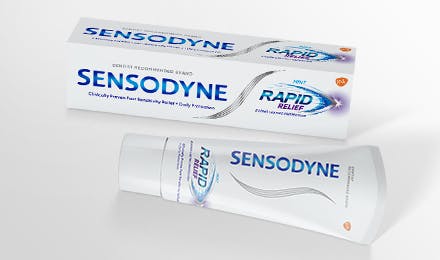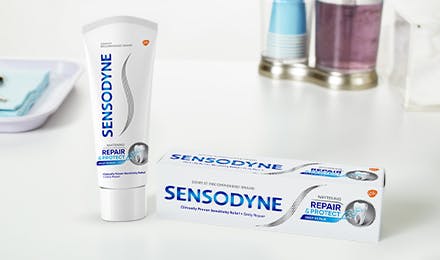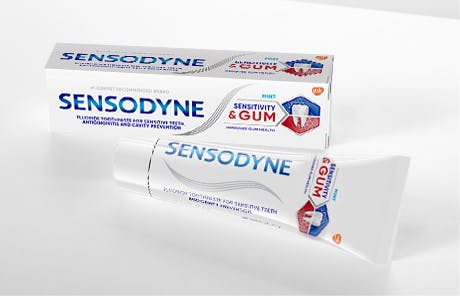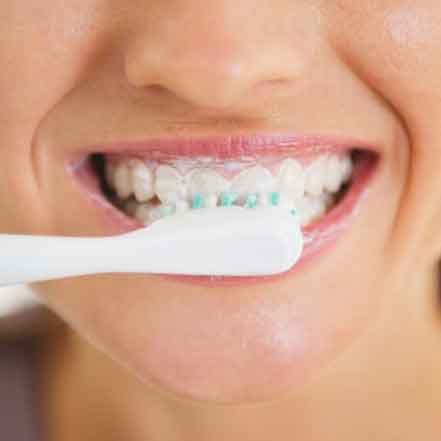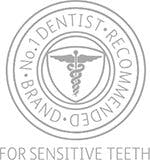SLS Toothpaste and Sensitive Teeth
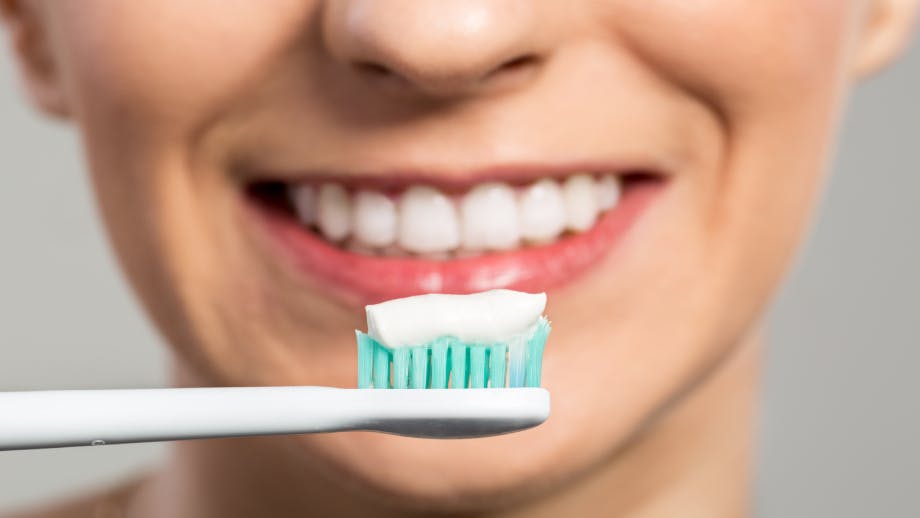
Brushing your teeth every day is an important part of a healthy routine so it’s important to know about the ingredients in your toothpaste. You might already know that fluoride is important because it helps fight cavities. You also might be aware that some toothpastes contain ingredients which help to whiten your teeth, relieve sensitivity, or provide a fresh flavor.1 But there’s even more to toothpaste than that. Read on to learn more about a toothpaste ingredient called Sodium Lauryl Sulfate, or SLS.
What is SLS?
SLS, or sodium lauryl sulfate, is an ingredient widely used as a surfactant in toothpaste, which means it reduces surface tension to help clean your teeth. 4 SLS is also used in a variety of household products, helping to make those products foamy.2,4
What is SLS in Toothpaste?
Sodium Lauryl Sulfate (SLS) is often an ingredient in toothpaste because it creates foam, which provides several benefits. 5 The foam created by SLS helps to remove food debris along with your brushing,2,5 and it helps active ingredients like fluoride make contact with your teeth. SLS also helps lift plaque from the teeth to leave a clean feeling.5 Chances are if your toothpaste is foamy, it may contain SLS.
SLS Toothpaste Concerns
While SLS provides some meaningful benefits, it is not the right choice for everyone. The American Dental Association has reported that SLS can cause contact irritation in some people.3 Some Sensodyne toothpastes do not include SLS like Sensodyne Extra Whitening toothpaste.
Over the years, some people have raised concerns over the use of SLS in toothpastes and other personal care products like shampoos and soaps—these concerns have led to unfounded myths about SLS being unsafe. However, these claims have been debunked; SLS is approved by several government agencies including the FDA and EPA to be used in a number of consumer applications.2,5
Make sure to talk to your dentist about finding a toothpaste that works best for you and your sensitive teeth. Not all toothpaste products are created the same, so make sure you look over multiple options. When considering a new toothpaste, try to look for characteristics like effectiveness, special benefits (i.e. whitening, sensitivity relief, multi-benefit) and a pleasant taste.
Several Sensodyne toothpastes do not contain SLS (sodium lauryl sulfate). Sensodyne toothpastes contain one of two ingredients for sensitivity relief, either potassium nitrate or stannous fluoride. Sensodyne toothpastes with potassium nitrate soothe the nerves inside your teeth, preventing them from sending pain signals from triggers, and toothpastes with stannous fluoride work like a shield to cover the exposed soft, inner part of the tooth called dentin. Learn more today about how you can manage sensitive teeth and Sensodyne toothpastes without SLS.
SOURCES
By clicking any of the links below you will be taken to an external website that is independently operated and not managed by GSK. GSK assumes no responsibility for the content on the website. If you do not wish to leave this website, do not click on the links below.


